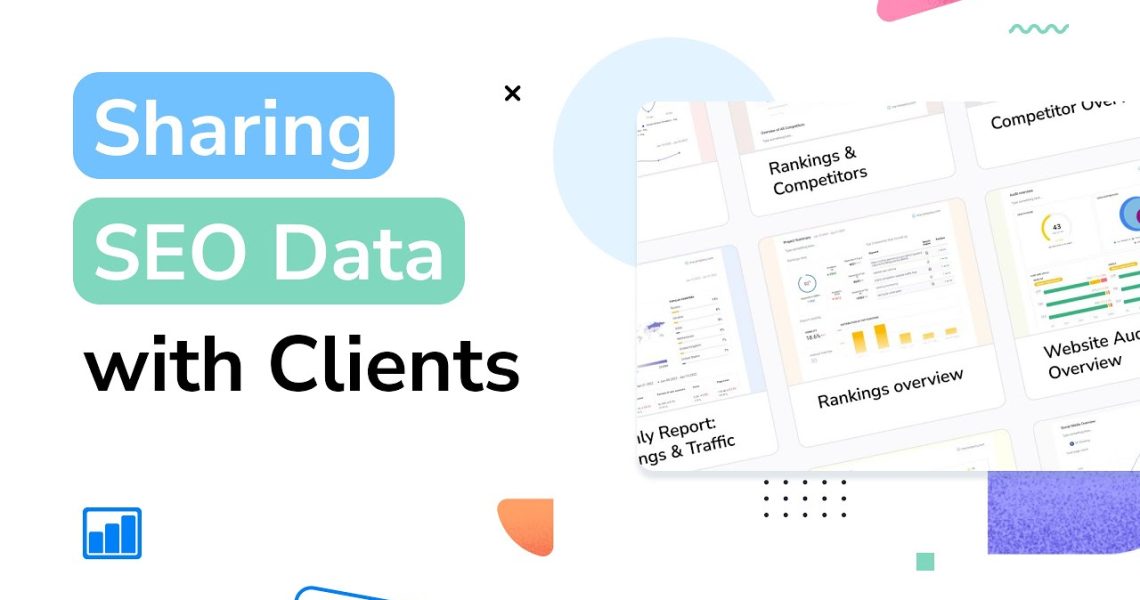SEO is the process of improving a website’s position in the organic (non-paid) search results. This will result in more traffic to the site.
This can be a tricky topic to explain, especially to non-SEO business owners and decision-makers. Fortunately, there are a few things you can do to ensure that your client understands how SEO works and why it matters to them.
1. Explain it in simple terms
SEO is a complicated subject, and it can be difficult to explain it to a client. However, if you’re going to succeed with your SEO marketing efforts, it’s important that you communicate clearly and thoroughly with your clients.
The best way to do this is by explaining the topic in simple terms. This will help your clients understand the basics and feel more confident working with you.
In short, SEO is the process of enhancing your website’s ranking on search engines like Google so that it receives more traffic from potential customers. The goal is to get your site to the top of the search results page when people are searching for your product or service.
There are a few core components to SEO, including content, links and page structure. These three aspects work together to ensure that your site will appear on the top of search engine results pages (SERPs) when a customer searches for your products or services.
According to Ihor Lavrenenko – keywords are a key part of SEO. These words and phrases are what your target audience uses when they’re looking for a product or service like yours, and you can optimize your content around them to improve your rankings.
Generally speaking, keywords fall into two categories: those that are used to find your product (Product Keywords) and those that are used to find information about your products or services (Informational Keywords). Optimizing your content around these keywords will increase your SEO performance.
To ensure that your SEO efforts pay off, you need to be diligent and consistently update your content. This can be done through regular blog updates, as well as adding new content to your website’s home page or landing pages.
Another way to make your SEO efforts stand out is by creating a scalable SEO strategy that will benefit your company long after you’ve completed the project. A solid strategy will include a mix of paid and organic traffic strategies, a willingness to be agile and an ability to keep up with changes in the industry.
It’s also a good idea to make use of the latest technology and marketing tools. This will help you deliver a more robust and effective marketing campaign that will be successful for your company. This will allow you to reach your goals and build long-lasting relationships with your clients.
2. Don’t be afraid to use acronyms
Acronyms are a great way to speed up communication in written and spoken form, especially when writing academic papers. They are also handy when you need to quickly explain complex concepts to someone without wasting too much time on words that would be too long.
Using acronyms correctly can save you time and ensure that your client understands what you are talking about. However, some people find it hard to understand certain abbreviations and jargon, so make sure you spell them out at least the first few times they are used.
You may find that you need to use acronyms when explaining SEO to a client, especially if they are new to the field or have little knowledge of what it is. You need to be patient with them and try your best to explain things in a way that is simple for them to understand.
When explaining SEO to a client, it is important to use acronyms that are known by everyone. This can be helpful when it comes to explaining how SEO works and how to improve your website’s ranking in search engine results.
It is also important to remember that some acronyms are now regarded as real words, so they should be capitalized when used in formal writing. This is especially true for the more common acronyms, such as taser or scuba.
In informal writing, such as texting or messaging platforms, it is often preferable to use lowercase letters when using acronyms. This makes them quicker to write and reduces the amount of time you need to spend formatting your work, which can be important if you have a lot of projects to complete.
Occasionally, acronyms can be pluralized as well. This is often a matter of style preference and should be checked with your client before incorporating them into any of your writing.
Another reason why you should use acronyms is that they help clients easily remember the different terms used in your work. They also make your work look more professional.
It is a good idea to include ALT Tags when you are creating any images on your website. This allows you to include important text on any image that doesn’t load properly so that it can still be seen and understood by search engines like Google.
3. Use an analogy
Using an analogy is a way to create a clear image that will stay in your client’s mind. Analogy is a literary device that compares two things, usually with the help of words such as “like,” “as,” or “as much.” This can be very helpful when writing about complex subjects like SEO.
The best analogies help you make a point without being overly complicated. They also make your points easier to understand by comparing them to something that is familiar and easy to remember.
For example, a person may have heard the analogy “Life is like a box of chocolates” before. This simple statement has a powerful impact on its audience because it is reminiscent of their own experiences.
This is because they have likely experienced the thrill of opening up a box of chocolates and seeing what’s inside. Similarly, life can be very exciting and unpredictable.
However, it is important to remember that it doesn’t always have to be this way. This is why it is crucial to choose the right analogy for the situation at hand.
In the case of SEO, you should use an analogy when explaining to a client that their website isn’t being found by search engines because it isn’t performing well enough. This will give them a better understanding of how SEO works and why it is so important.
You can also use an analogy when you are trying to explain how your business is different from the competition. This will make your argument more convincing to the reader and encourage them to take the next step.
Another great analogy to use when explaining SEO is the famous saying, “Life is like a box of chocolates.” This is because it is a reminder that you never know what you are going to get.
If you want to use an analogy when explaining SEO, try to find a comparison that is as close to your client’s experience as possible. You can use their everyday vocabulary or the images they know and relate to. It is also important to be clear about what you want them to take away from the analogy.
4. Be patient
When it comes to educating clients on SEO, there is a certain level of trust that needs to be built between the two of you. While you are likely an expert on the subject, your client is most likely a novice when it comes to online marketing.
This is why it is important to be patient with your client. You don’t want to scare them off by explaining SEO in the wrong way.
The key to winning your client’s confidence is to make sure you understand their goals, objectives and budget. The best way to do this is to take the time to listen to them and determine their level of understanding.
For example, if your client is a small business owner who has no prior experience with digital marketing, explain that SEO is about more than just getting their website on the first page of Google search results. It’s about creating quality content, optimizing images and implementing other SEO best practices to improve their online presence.
Another important factor to consider is the amount of work required for your client’s website. This is something that can be difficult to quantify, so be honest about the amount of work involved and how long it will take.
In a world where many businesses are reliant on the internet for sales, it’s not uncommon to see a client expect quick results from an SEO campaign. However, it’s essential to point out that while it’s true that SEO is an excellent marketing tool, it takes time to produce meaningful results.
One of the best ways to accomplish this is by ensuring your client has the right tools and resources in place to support their SEO efforts. This could include SEO-related software, a keyword research tool and a well-designed keyword strategy.
As a bonus, it’s also important to demonstrate that you have their best interests in mind. This could be through a regular meeting where you discuss your strategy with each client. This is a great opportunity to show them what SEO is all about, and how it can benefit their bottom line.



